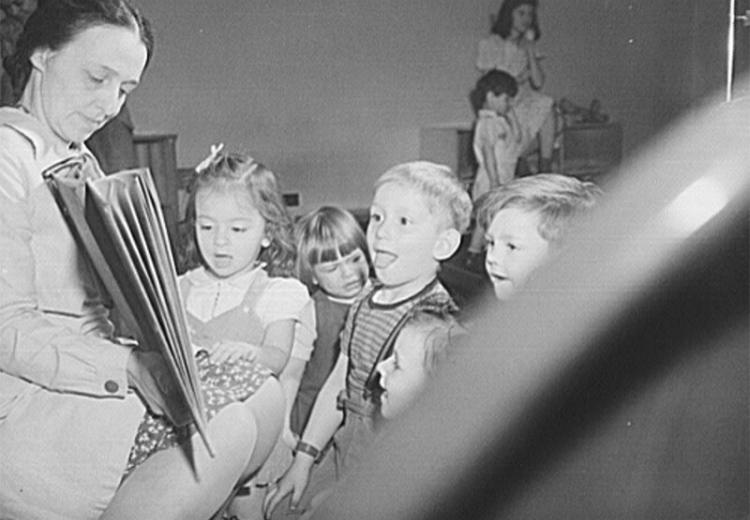Play with Words: Rhyme & Verse

World War II-era (1943) Buffalo, New York nursery school children react to Mother Goose during morning play period.
Children of all ages enjoy listening to bouncy rhythms and reciting catchy rhymes. Poetry provides us with a rich vehicle for helping children explore how language sounds and works. Such exploration helps develop skills related to language usage, listening, vocabulary acquisition, and auditory memory, while also fostering an understanding of thematically related concepts. Most important, a study of poetry helps promote a warm, relaxed classroom atmosphere that's conducive to learning.
In this lesson, students will use their senses to experience poetry. Students will listen to poems and rhymes, clap out syllables, and sing along with familiar tunes. They will also use puppets and crafts to help recall and retell favorite poems. Finally, students will experience the joy of crafting their own original poems.
Guiding Questions
What is a poem?
Have you ever heard a poem?
Has anyone ever shared a poem with you?
Do you have a favorite poem? Can you name or recite your favorite poem? What do you like about that poem?
How can you tell the difference between a poem and a story?
Can stories be poems?
Learning Objectives
Verbalize an understanding of the themes, subjects, speakers, and inferences in the poems they hear
Use verbal and physical signals to show that they recognize rhyming words and word family endings
Define what a syllable is and learn to count syllabic beats
Learn that there are different kinds of poems, including those that rhyme and Japanese haiku
Demonstrate knowledge of what a haiku is by writing or dictating an original haiku using descriptive words
Memorize a favorite short poem or nursery rhyme, and act it out to display understanding of its meaning
